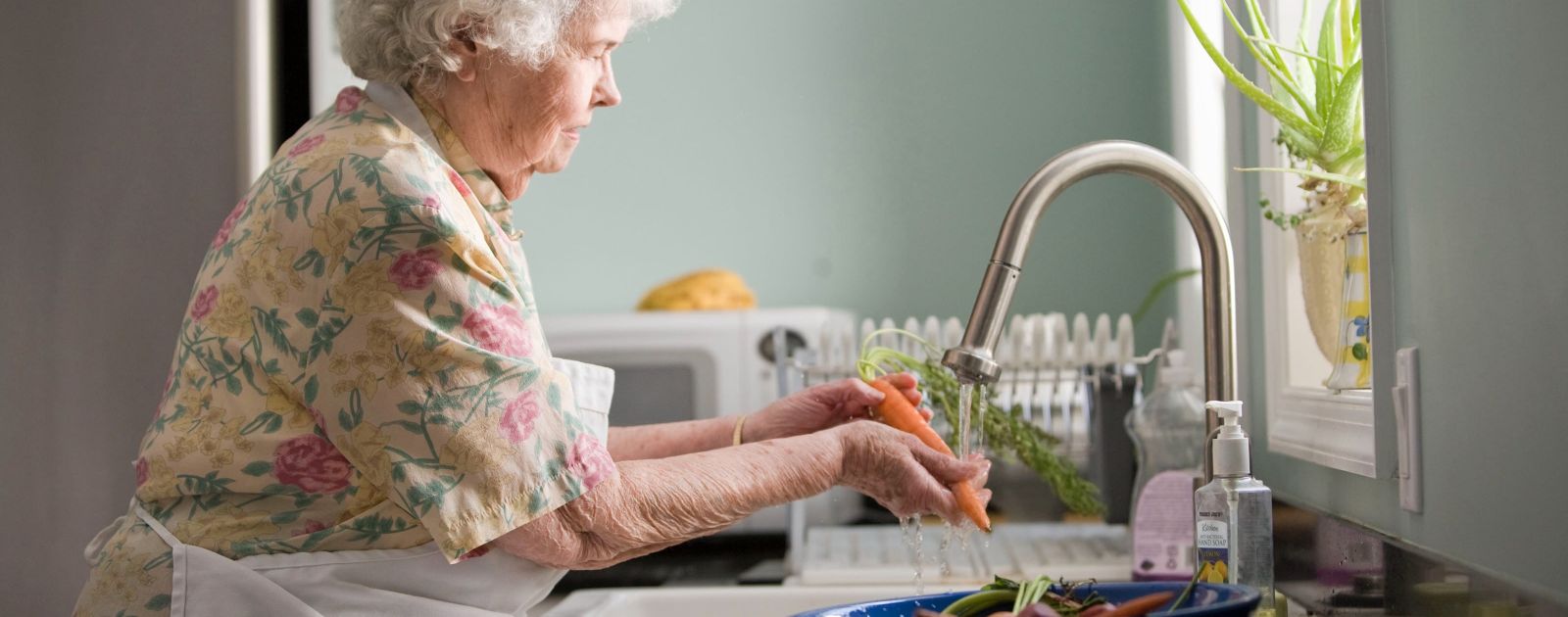
Five steps to healthy ageing
Author: Sara Stagg
Joan Collins famously once declared ‘Age is just a number’ but as we age it’s natural to worry about what the future may bring. The UK has an ageing population, and knowing how to age well is an important consideration. At The Dower House, we believe there are five core areas of your life to think about when it comes to maintaining your health, vitality and independence.
Diet and Hydration
What you eat and drink is incredibly important throughout your life, but as you get older, you can’t get away with the bad habits you may have done in your youth!
Your appetite will often reduce as you get older making it important that every meal is carefully planned to offer a nutritionally balanced mix of vitamins and minerals, is low in saturated fats and salt and includes some dairy and lean meat.
If you have allergies or intolerances, your meals will need even more planning to cater for these whilst still being wholesome and tasty. After all, nobody wants a healthy meal that doesn’t taste nice.
Hydration is an important factor of your diet and even a little dehydration can severely affect your general wellbeing. Apart from the usual side effects of dehydration like headaches, tiredness and constipation, older people are more at risk of falls when dehydrated.
Depending on the weather, your medication and general health you need around 1.5 litres of fluid a day.
Mental and Physical Exercise
Aches, pains and chronic health conditions are common as you age and may mean you don’t feel like exercising much. However, it is really important to keep active – physically and mentally.
Moderate exercise will maintain your cardiovascular fitness, improve your flexibility and help prevent trips and falls. Choose an activity that you enjoy as you are more likely to do it regularly. And, of course, if you have health conditions, always consult your doctor before starting something new.
Meanwhile ‘brain training’ activities will help prevent cognitive decline – not to mention reducing boredom. Activities include puzzles, crosswords, jigsaws, card games and knitting. Or perhaps you could learn a completely new skill like a new language.
Healthy sleep routines
Sleep routines are important as insufficient, or poor quality, sleep can lead to depression, cognitive decline, irritability and even result in more trips or falls.
To make sure you get enough, good quality, sleep you need to eat well and at regular intervals and take sufficient exercise. Avoid things like caffeinated drinks in the evening, leave your devices in another room so their blue light doesn’t disturb your sleep, and make sure your bedroom is well ventilated, dark and quiet.
Regular social interaction
Human beings are social creatures and creating a strong social network helps prevent feelings of loneliness and isolation which can lead to mental and physical health conditions.
Whether your social activities are ‘in real life’, virtual (as has been the case for most of us for much of 2020), or a mix of both, regular contact with friends and family, plus participating in hobbies, will help keep you socially connected and eternally young at heart as you age.
Medication and personal hygiene
When it comes to taking care of your well-being, ensuring you take the right medication at the right time, and that you take care of things like your personal and oral hygiene will help keep you healthy and happy as you age.
Missing medication or accidentally taking too much can result in serious complications so use labelled pillboxes or set reminders on your phone to ensure you never forget to take a dose.
The dentist might not be your idea of a fun day out, but regular check ups will save you pain and discomfort in the long run. Likewise, take advantage of the various well-woman and well-man check ups offered by your GP practice or local health service. Identifying health problems sooner, rather than later, often makes a huge difference to your treatment pathway and the outcomes you can expect.
Taking a holistic approach to your health and well-being will pay dividends when it comes to enjoying greater independence as you age.
And when the time comes to move into residential care, it doesn’t mean the end of your independence. At The Dower House, residents are encouraged and supported to remain safely independent for as long as possible. To find out more about life at The Dower House, click here.
< Back to all Blog posts
Enjoy a taste of life at The Dower House
Join us for a tour of the house to experience the welcoming, homely atmosphere. Book a visit now, we’d be delighted to welcome you.
